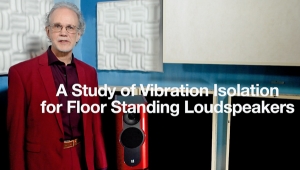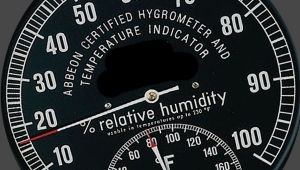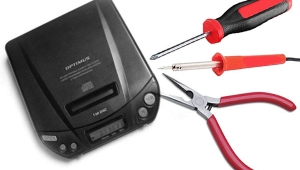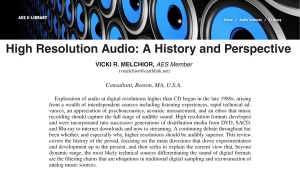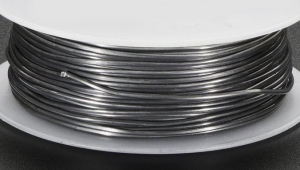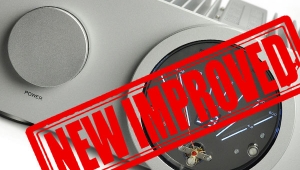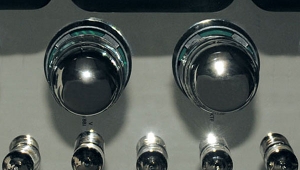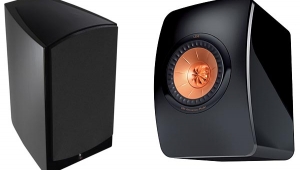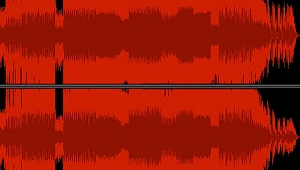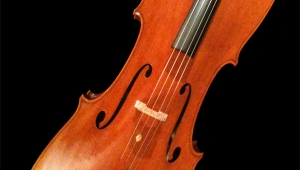| Columns Retired Columns & Blogs |
Scientists vs Audiophiles 1999 More Letters part 3
Audiophiles need engineers
Editor: This is a reply to a letter from David Del Bourgo, published in the September Stereophile. First, it would have been ethical in this somewhat rare instance for the editor to seek out a rebuttal from some "qualified" audio engineer to run simultaneously. Why is it that we engineers get bashed first, without a chance to reply until much later, after the damage is done?
Editor: This is a reply to a letter from David Del Bourgo, published in the September Stereophile. First, it would have been ethical in this somewhat rare instance for the editor to seek out a rebuttal from some "qualified" audio engineer to run simultaneously. Why is it that we engineers get bashed first, without a chance to reply until much later, after the damage is done?
I take great offense at Mr. Del Bourgo's intimation that we audio engineers are not dedicated, and are also deaf (my words). His statement as to his "educated guess" is the biggest oxymoron of all. Granted, there are, to be sure, a lot of unqualified dilettantes who seem to think that they are engineers. So it goes in an industry that has no rules. But I can assure him and everyone else that there are and have been a few of us "scientists" who care first about the sound and the music—and, as professional engineers, we know that we also must use sound engineering practices in developing a product. The two go hand in hand.
In my opinion, the greatest audio engineer who ever lived (he's still living) is Sidney S. Smith, who designed all those glorious tube products at Marantz in the '50s and '60s. What was he—chopped liver?
The irony here is that Sidney's primary vocation was as an opera singer, not as an engineer. His overwhelming desire, however, was the music. As far as I am concerned, I am a classically trained musician and composer. However, I got into this design situation for the identical reason: to make better-sounding components. I think that my career speaks for itself.
In addition, this assumption that has been going around the "golden-eared audiophile" community for decades—to the effect that musicians can't hear, and/or have a different perspective—is just plain utter nonsense and rubbish. As a matter of fact, I have a few friends who call themselves audiophiles who have absolutely no concept of music, live, recorded, or otherwise. Yet they tweak their systems to the nth degree in search of the holy grail of "sounds" (read: "effects"). They never go to hear live music, and for the most part listen at unrealistically loud levels. To be frank, I think that they are deaf.
Last, where does Mr. Del Bourgo get off insinuating that someone who doesn't like or understand "art" per se is an ignoramus? I happen to be one of those people; ie, I just don't care for it. But I have been a wine connoisseur for almost all of my life, and have a decent nose and know every vintage (French, of course) and every great year. I love sports (I'm a football and bowling fanatic), but I positively detest golf.
I should stop rambling, as these things and situations are always annoying. Needless to say, ignorance is the greatest attribute of fools, and David Del Bourgo should reassess his viewpoint: there are a few of us lowly scientist-engineer types who really do care about the sound.—James Bongiorno, Santa Barbara, CA, sstinc@earthlink.net
Double-blind testing
Editor: In the by-now-familiar tirade from the Objectivist engineering crowd, Robert Orban ("Letters," October, p.15) accuses audiophiles of being "anti-experimentalist" because they fail to use the double-blind and null tests that he favors. No, Mr. Orban, we don't reject scientific experimentation, only the specific tests you favor: they are unnecessarily complex and contrived; they bear little resemblance to the way people actually listen to music in their homes; they are therefore irrelevant.
Mr. Orban is quite right about the scientific cachet of double-blind testing, but he misapplies it. Look, if I want to compare two amplifiers at home and still be objective, I can have them put behind a curtain, in a box, or in another room by a second person so that I cannot see them. I can then have a remote switch hooked up so I can choose between A and B without knowing their brand identities until the listening sessions are finished and I have recorded my conclusions. This is a valid single-blind experiment that is consistent with the way I actually listen to music at home. A single-blind test has a further advantage in that it can be continued tomorrow or until the end of the month or whenever, to detect subtle differences that may become apparent only with extended listening.
Double-blind testing is needed only when both principals, the researcher and his subject, are susceptible to subconscious influences on each other—as, for example, in a drug test on humans. Since an amplifier is an inanimate object, why is a double-blind test required? Why should an audio test be burdened with an additional and unnecessary randomization (ABX) of the switching so one has to guess which of two anonymous components he is actually hearing? An experimenter should try to design his tests to be as simple and direct as possible, but it seems that the audio Objectivists go out of their way to choose testing methods that maximize complexity and minimize real-world behavior and experience.
To sum up, Mr. Orban and the Objectivists have rejected a scientifically rigorous single-blind experiment in favor of an artificially complex and contrived double-blind one. Objective? Yes. Valid in its application to home audio? Probably not. Then they extrapolate their laboratory results (ie, everything sounds the same) to the home without providing any proof that their data are meaningful there. So who is being "scientific," Mr. Orban?
On the other hand, I can sympathize somewhat with the Objectivists after reading Chip Stern's review of the Mesa Tigris integrated amplifier in the August 1999 Stereophile. The technical tests by Thomas J. Norton show a badly engineered product with restricted bandwidth, gobs of distortion, and wretched squarewave performance; Mr. Norton properly characterizes the amp's electrical performance as "poor." So it comes as a shock to read Mr. Stern's fulsome praise: "one of the most compelling values in high-end audio." Okay, so electrical test-bench data are never definitive, but the discrepancy here is so great that it invites the kind of condescending derision shown by Mr. Orban.
Perhaps the technical limitations of the Mesa Tigris combine in a euphonic manner, but I hardly think that this well serves the quest for high-fidelity music reproduction. I think Stereophile owes its readers a second opinion by a different reviewer; you might even steal some of the thunder from the Objectivists and arrange a single-blind comparison with the Tigris amp and an accurate amp in the same price range. Wouldn't it be fun to "null out" Mr. Orban?—Malcolm G. Balfour, Acme, PA
- Log in or register to post comments
